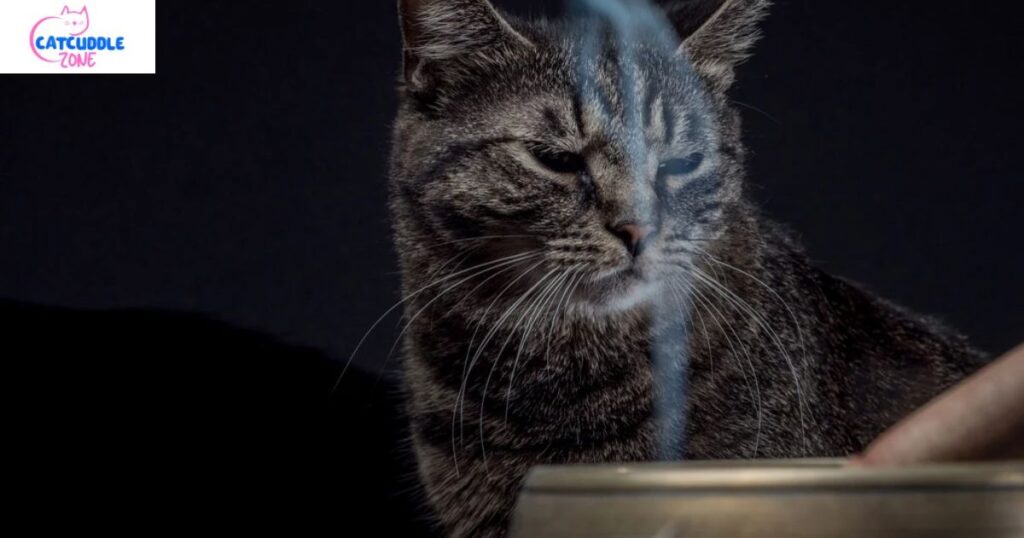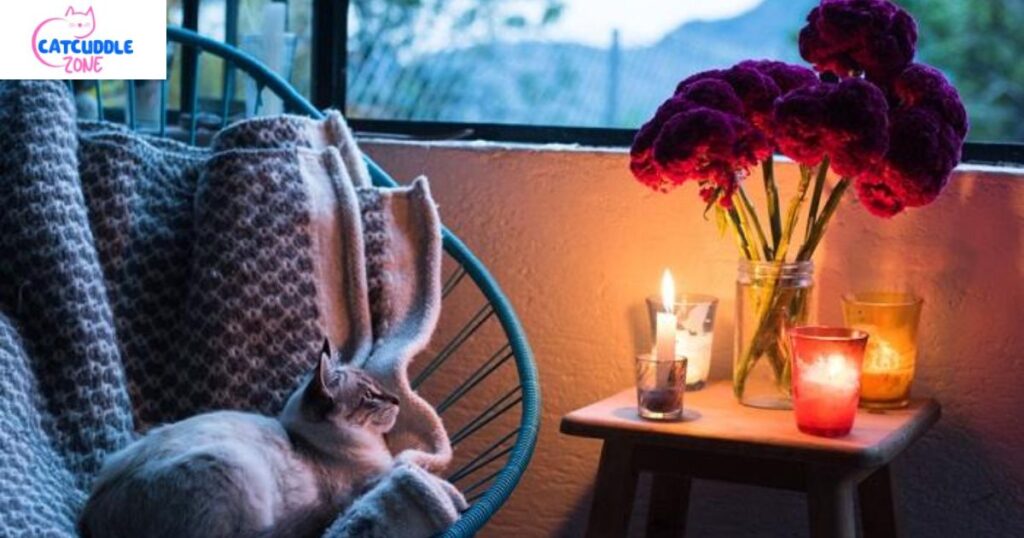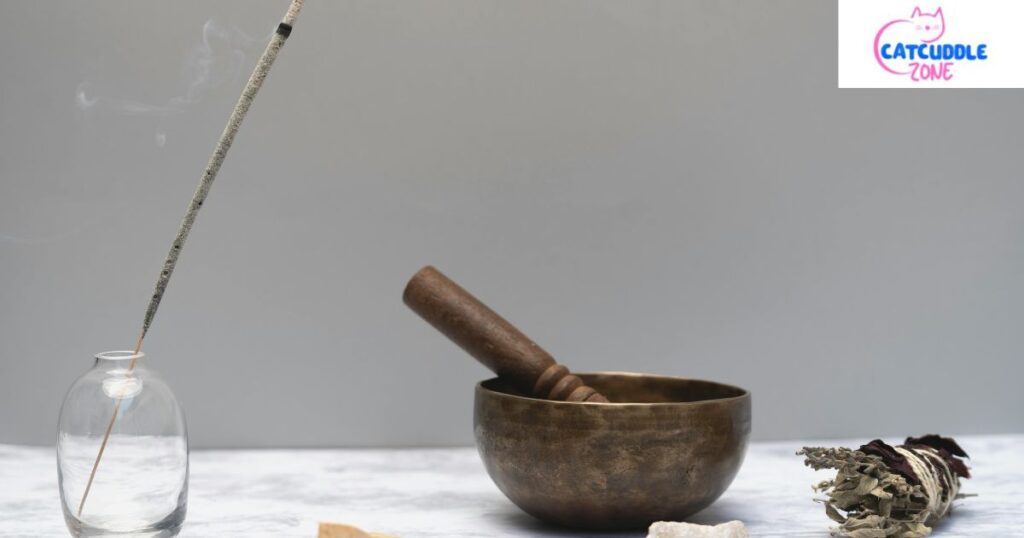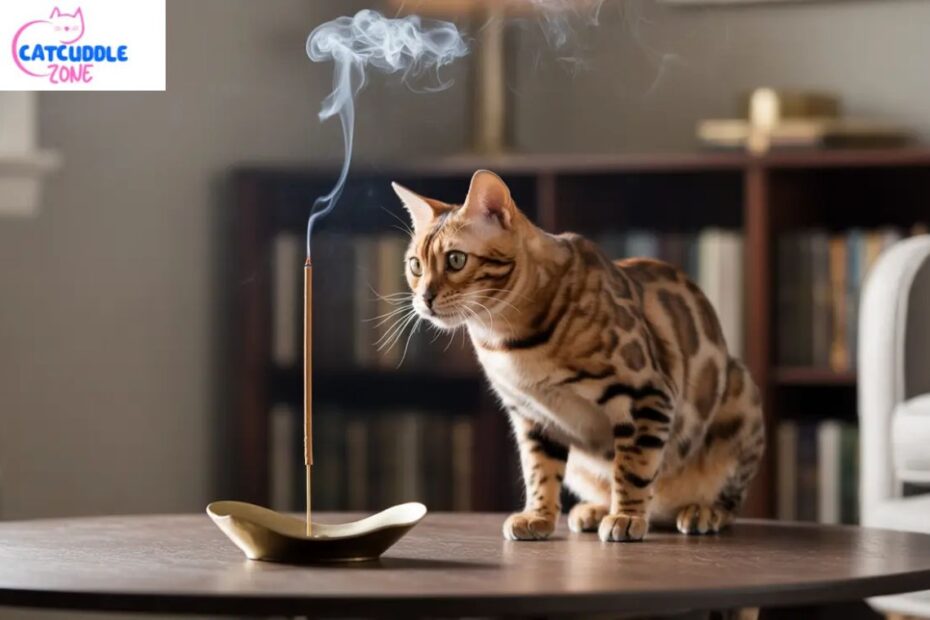The calming aroma of incense is highly rated by most pet parents, but when you cohabit with a cat, you may find yourself asking yourself: does incense make cats sick? Widely used ingredients in the preparation of incense are plant materials, resins and essential oils, which produce smoke and smell when burnt. Although these materials are pleasing to us, they may annoy the sensitive respiratory system of a cat and drown their sensitive sense of smell. Even long-term exposure can lead to such health problems as asthma or allergies. We are going to discuss the risks, safer options, and what every responsible cat owner needs to be aware of to make their pet a healthy and stress-free environment in this guide.
What Is Incense and How Does It Work?
Incense is usually a mixture of aromatic herbs, essential oils, wood powders and resin. The stick/cone burns gradually when lit and gives a strong aroma to the air. This smoke fills a room with aroma, aroma concealment and energy.
Nevertheless, incense does this through combustion that translates into toxic smokes to a cat along with the smell. Environmental Protection Agency air pollution studies incense burning indicate that indoor air pollution ranks among the biggest contributors of air pollution through cigarette or wood burning. Cats are smaller and sensitive to the lungs, which means that they are much more susceptible to these emissions in comparison to humans.

Are All Types of Incense Harmful for Cats?
Not any incense form is identical. Stick incense tends to give constant smoke, whereas cones can tend to emit heavier clouds. It has been said that natural incense prepared using pure herbs are safer, but even that may cause respiratory irritation to cats.
This is equally dangerous based on strength. Incense laced with cat-toxic essential oils like eucalyptus, cinnamon or tea tree are more dangerous. Special danger is exposed to cats due to the lack of liver enzymes to metabolize such oils. No matter the type you choose, even sensitive cats to smell may react negatively to the strong scent.
Why Burning Incense Can Be Dangerous for Cats
The breathing rate of cats is greater than that of human beings, as such, cats breathe in more smoke within a short period. These smoke particles may get stuck in their lungs. Gradually, it predisposes to cat asthma, bronchitis and even lung disease.
Physical burns are also one more danger. Inquisitive cats can swat smouldering incense or knock it over, causing cat burns caused by hot ash. Although your cat may escape the flame, the overwhelming smells of cats may cause them to become stressed, anxious or withdrawn. The risks are greater in the case of animals who are cat-allergic to smoke.

Signs Your Cat Is Affected by Incense Smoke
These symptoms of exposure to incense in cats usually manifest soon. You might sneeze, have watery eyes or cough smoke soon after you light incense. Other cats grow lazy, uninterested in eating or get away into rooms where smoke is present.
In case of severe irritation, such symptoms as wheezing, vomiting, or dyspnea may appear. All these are worthy of consideration since they are indicative of aggravating cat respiratory issues. In such cases, seek immediate veterinary care.
Long-Term Health Risks of Incense Exposure in Cats
The ongoing exposure to incense smoke elevates the risk of asthma and chronic bronchitis and indoor air quality problems in cats. Pulmonary inflammation may reduce oxygen uptake, causing simple activities to be more difficult in your cat.
Evidence also exists that long-term use of incense is associated with cancer in humans, and cats are thought to be at risk as well. In a study of when the cat lungs are exposed to incense, researchers realize that the continuous smoke inhalation causes long-lasting harm, reducing the lifespan of the asthmatic and respiratory issues of cats.
Can You Burn Incense Safely Around Cats?
Most respondents pose the question; Can I have fun with incense and retain my pets at the same time? The quick answer to this is, you should not do it. Should you absolutely need to, be sure to have strong ventilation by opening windows or an air purifier in the home to keep the smoke to a minimum.
Store incense away from litter boxes, beds and places where your cat sleeps. Limit both the frequency and length of burning sessions. Despite such precautions, it still might be possible to notice the consequences of incense smoke on cats, so, it is better to monitor the changes in the behavior of your pet.

Cat-Safe Alternatives to Incense
You can safely enjoy fragrance at home and still ensure you do not hurt your cat. An example is scented candles made of soy or beeswax that do not smoke as much because they are unscented or free of some harmful oils. Alternatively, simmer pots with herbs and citrus peels can be used as a substitute product to incense and be considered cat safe.
There are also commercial pet-safe air fresheners cables and products such as Febreze safe with cats but they should be used sparingly. Always read labels to be sure they do not have toxic essential oils to cats. These options make your home fresh without affecting the safety of cats at home.
What To Do If Your Cat Inhales Too Much Smoke
In case your cat is exposed to too much incense smoke, take them out of the smoke and into fresh air. Symptoms of the effects of incense in cats, such as drooling or wheezing, should be noted closely monitored. In case they get worse, call your veterinarian immediately.
Do not attempt to treat the problem by means of home remedies or essential oils, which may only increase the situation. It is only a trained vet who would determine the effects of incense on cat lungs and give appropriate treatment.
Safer Ways to Keep Your Home Smelling Fresh
The most suitable substitute for incense is a clean environment. Litter boxes and vacuuming should be cleaned regularly in order to keep the smells away early enough. Natural smell removers such as baking soda and activated charcoal are the best in eliminating unpleasant smells.
Plants also purify water and are safe to plants and can be used. These techniques are coupled with an air purifier to pets to enhance both cat and indoor air quality without exposing them to toxic substances. These feline friendly home scents will keep you and your cat at ease.
FAQs
Is there pet friendly incense?
Most incense isn’t truly pet-friendly; instead, opt for safer alternatives like air purifiers or vet-approved sprays.
Which incense is non-toxic to cats?
No incense is completely non-toxic for cats, but high-quality, natural incense with minimal additives is less harmful if used carefully.
Is it safe to breathe in incense?
Breathing in incense regularly can irritate the lungs in both humans and pets, making it unsafe for long-term use.
What incense calms cats?
Cats don’t find incense calming; instead, pheromone diffusers or catnip are safer options for relaxation.
Is incense ok to burn with cats?
It’s best avoided, but if necessary, burn incense in a well-ventilated, cat-free room to reduce risks.
